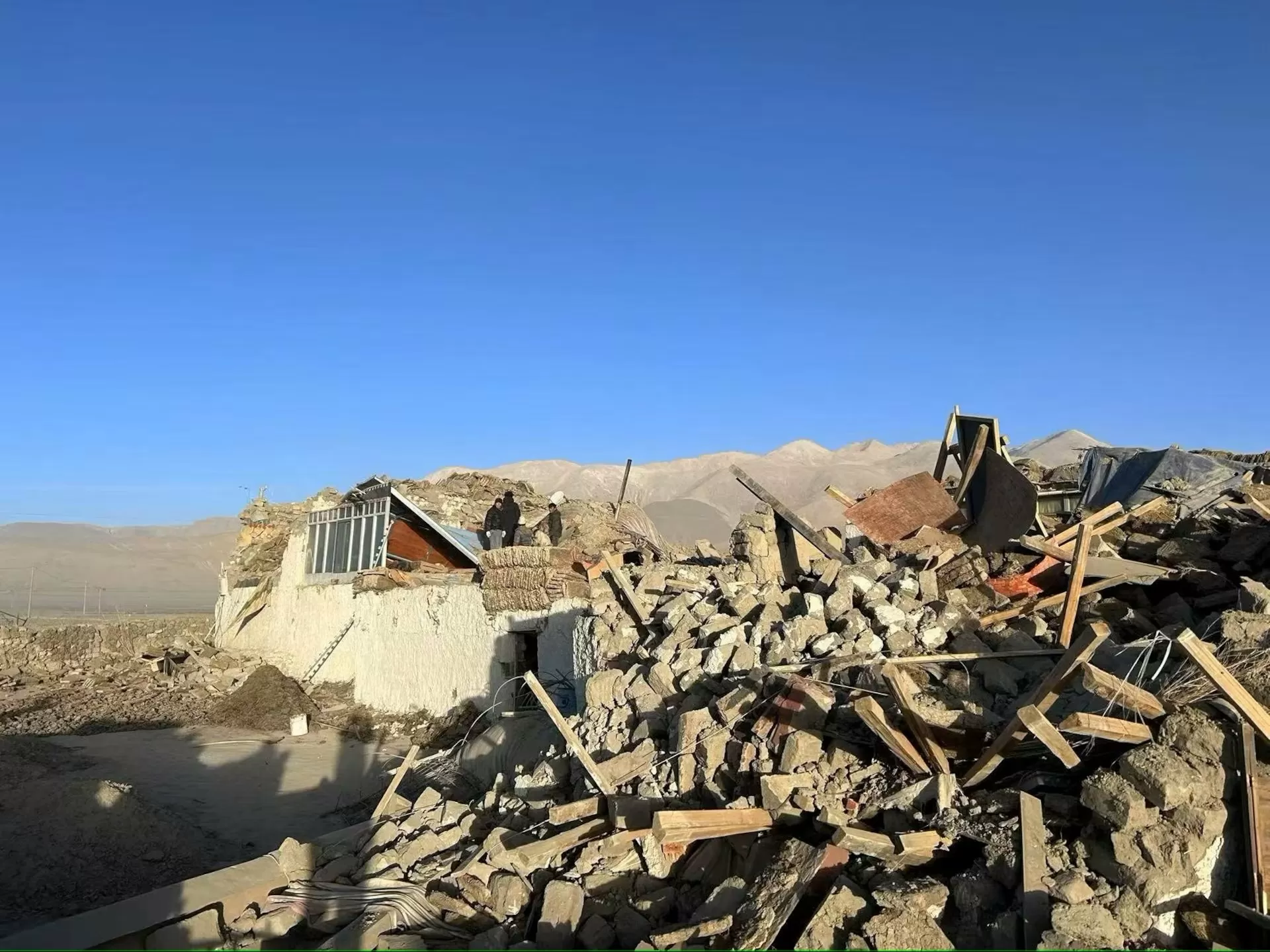A powerful earthquake struck China’s remote Tibet region on Tuesday, leaving a trail of destruction and claiming the lives of at least 95 people. The earthquake, measuring 6.9 on the Richter scale, was felt as far as Kathmandu in Nepal and parts of India, sending shockwaves through the region.
The epicenter of the earthquake was located in the Ngari Prefecture, a sparsely populated area in western Tibet. The remote location of the earthquake made rescue efforts challenging, but the Chinese government quickly mobilized resources to provide aid to the affected areas.
The earthquake, which struck in the early hours of the morning, caught many people off guard, causing panic and chaos. The tremors were felt as far as the capital city of Lhasa, where buildings swayed and people rushed out onto the streets in fear. The strong quake also caused landslides, cutting off roads and hindering rescue efforts.
The death toll is expected to rise as rescue teams continue to search for survivors in the rubble of collapsed buildings. The Chinese government has declared a state of emergency in the affected areas and has promised to provide all necessary assistance to those affected by the disaster.
The earthquake has caused significant damage to infrastructure, with many buildings collapsing and roads being destroyed. The remote location of the affected areas has made it difficult for aid to reach those in need, but the Chinese government has been quick to respond, sending in helicopters and relief supplies to the affected areas.
The earthquake has also had a significant impact on the lives of the local people, many of whom rely on farming and herding for their livelihoods. The destruction of homes and loss of livestock has left many families without shelter and a means to support themselves. However, the Chinese government has assured that they will provide all necessary support to help the affected communities get back on their feet.
The earthquake has also caused widespread power outages and disrupted communication networks, making it difficult for people to reach their loved ones. However, the Chinese government has been working tirelessly to restore these services and ensure that people are able to connect with their families and friends.
Despite the devastation caused by the earthquake, the Chinese people have shown remarkable resilience and unity in the face of this tragedy. Volunteers and rescue workers have come together to provide aid and support to those in need, showcasing the true spirit of humanity.
The international community has also extended their support and condolences to China, with many countries offering assistance and aid to help with the relief efforts. This outpouring of support is a testament to the strong bonds and friendships that exist between nations in times of crisis.
The earthquake in Tibet serves as a reminder of the unpredictable nature of natural disasters and the importance of being prepared for such events. The Chinese government has been proactive in implementing measures to mitigate the impact of earthquakes, and this disaster will only strengthen their commitment to ensuring the safety and well-being of their citizens.
As the affected communities begin the long process of rebuilding and recovering, it is important to remember that in the face of adversity, we are all united as one human family. Let us continue to stand together and support each other in times of need, and may the strength and resilience of the Chinese people serve as an inspiration to us all.






![Complete BritRail Pass Guide [Types, How to Use It, Pros + Cons]](https://inside-news.uk/wp-content/uploads/2025/06/00221EB4-BCA2-4DBB-6CD4-83DBC37D71FA-120x86.webp)














